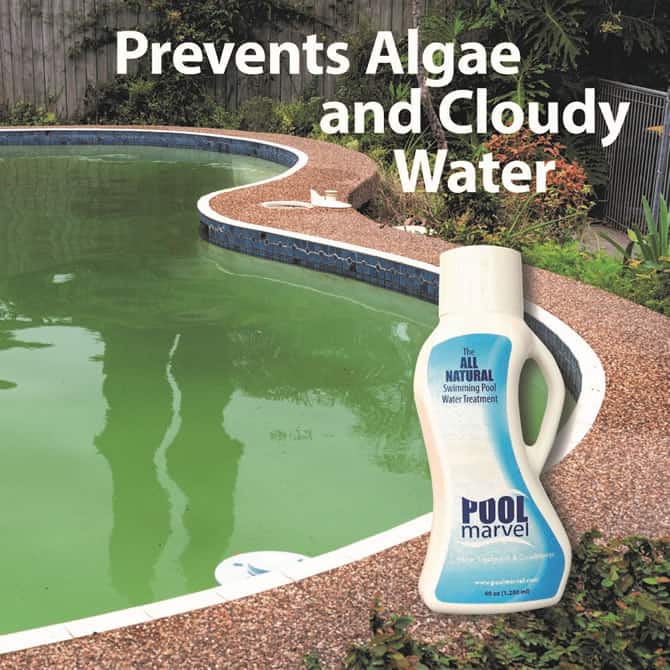
Is Swimming Pool Algae Dangerous? Pool Algae Types & Safety
If your above-ground pool water is green, murky, or stained with color, you may have an algae infestation. Swimming pool algae is a nuisance for pool owners working to keep their water clean, clear, and ready to use. You might be particularly concerned if you observed this while using the pool, leaving you with the nagging questions: Is pool algae dangerous? Can you swim in a pool with algae? Where did it come from, and how do you treat swimming pool algae?
Whether you’re already dealing with a swimming pool algae bloom or want to learn how to prevent it, there are steps you can take to protect your pool and those who swim in it.
How Swimming Pool Algae Affects Pools
Swimming pool algae, if left untreated, can cause damage to your pool. Algae can gather together and become thick, clogging up your filters and plumbing. Ultimately, this leads to more algae and can result in a severe blockage. It can also severely stain or cause superficial damage to the surfaces of your pool or equipment. Black algae in the swimming pool, in particular, tends to grow deep into surfaces and stains them. Black algae is tough to eradicate once it has taken hold fully.
If you notice any signs of swimming pool algae, it’s critical to take immediate action. Otherwise, algae become resistant to typical treatments, such as chemical shocks or chlorine. Because algae infestation often results from a lack of maintenance, you’ll also want to implement a regular testing and treatment schedule once you get it under control.
How Swimming Pool Algae Affects Swimmers

If your above-ground pool water is green or has other discoloration, you may be thinking: is pool algae dangerous? Algae on its own are not harmful, and in theory, would be safe to swim in. However, as to the question: is it safe to swim in a pool with algae? The answer is ‘no.’
The reason is that swimming pool algae, especially in large quantities, is a breeding ground for bacteria. For example, mustard algae in the swimming pool can harbor e. Coli. Also, red algae in the swimming pool are actually bacteria, which can make people sick, especially if left untreated. Using a pool with algae can also lead to rashes, eye infections, respiratory infections, diarrhea, and more. Before dismissing ‘can you swim in a pool with algae safely?’, consider how much risk you’re willing to take with your health.
Common Types of Swimming Pool Algae
Although green algae in a swimming pool is the most well-known, there are four different types of swimming pool algae.
Black algae in a swimming pool looks like small black spots on the surfaces. Once it gets into the cracks, black algae in the swimming pool can spread quickly and deeply penetrate the surface. If you start to see black algae in your swimming pool, it needs to be treated as soon as possible to prevent damage.
Green algae in a swimming pool is what most people picture when they think of algae. When green algae in the swimming pool spread, the water will turn slimy and green. As green algae in the swimming pool grow, it can attach to the walls and floor and will need to be scrubbed off.
Mustard algae in a swimming pool is named for its yellow color. While some algae float, mustard algae in a swimming pool are more likely to cling to surfaces or around lights and ladder rungs. Since it’s chlorine resistant, mustard algae in the swimming pool are challenging to remove.
Red algae in a swimming pool may look like algae but are actually bacteria. If you don’t treat red algae in the swimming pool, it can take over and put swimmers at risk. Wind and rain carry red algae in a swimming pool, where the sun’s rays mixing with sweat or chemicals can make it worse.
When you’re dealing with swimming pool algae, it may feel overwhelming to handle it yourself. To learn more about how to prevent or get rid of swimming pool algae, check out our complete guide. Also, add Pool Marvel Water Treatment to your maintenance program to increase the effectiveness of chemical treatments and keep swimming pool algae from taking over.

